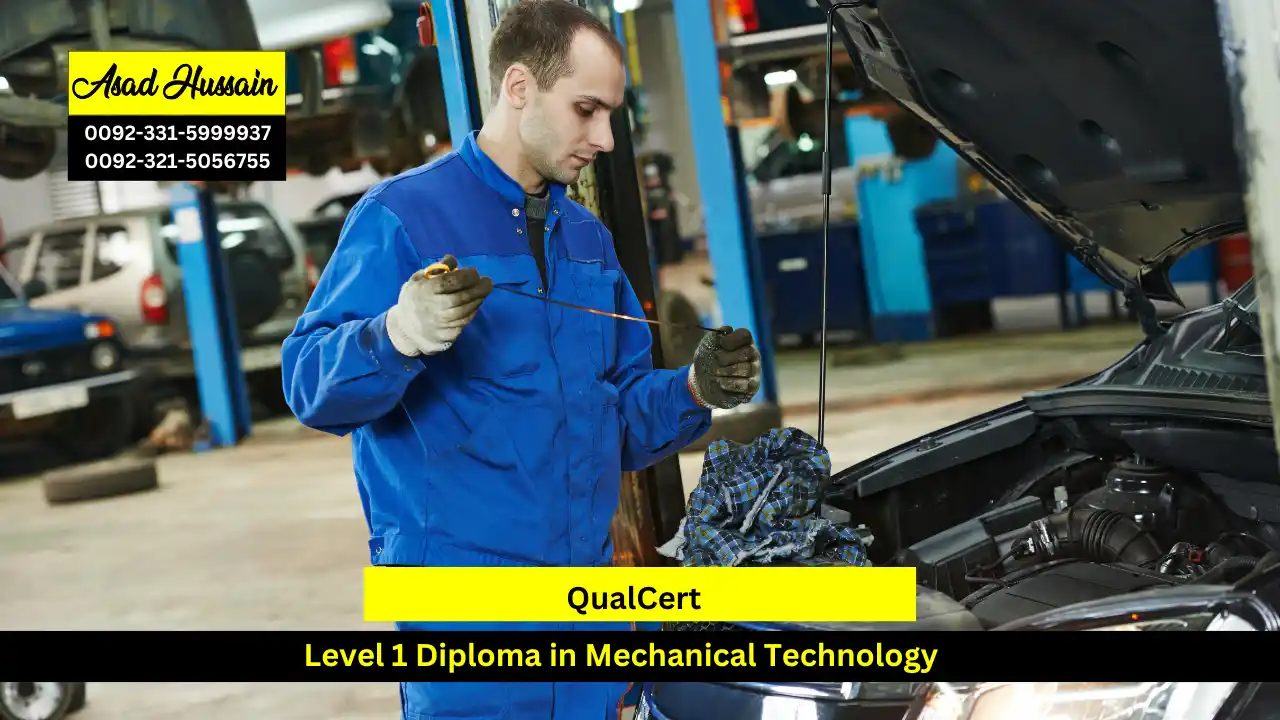In today’s rapidly evolving technological landscape, the demand for skilled professionals in mechanical technology is at an all-time high. The Level 1 Diploma in Mechanical Technology serves as an excellent starting point for individuals eager to embark on a rewarding career in this dynamic field. This blog post will delve into the essentials of this diploma, its benefits, and the opportunities it opens up for aspiring technicians and engineers.
The Level 1 Diploma in Mechanical Technology is an entry-level qualification designed to provide foundational knowledge and practical skills in mechanical engineering and technology. This program is ideal for those who are new to the field and wish to gain a solid understanding of the basic principles and practices of mechanical technology
The Level 1 Diploma in Mechanical Technology is an excellent stepping stone for individuals aspiring to build a successful career in mechanical engineering. With its comprehensive curriculum, practical training, and diverse career opportunities, this diploma equips graduates with the essential skills and knowledge to thrive in the ever-evolving world of mechanical technology. Whether you are a school leaver looking to start your career or an adult learner seeking a career change, this diploma offers a promising pathway to achieving your professional goals.
Program Highlights
Mandatory Units
- Introduction to Mechanical Engineering .
- Machine Tools and Operations .
- Materials and Manufacturing.
- Engineering Mathematics .
- Health and Safety in Engineering .
- Educational Background: Typically, participants should have a high school diploma or its equivalent (such as a GED). Some programs may require a minimum level of education, such as completion of secondary education, to ensure participants have basic academic skills.
- Language Proficiency: Proficiency in the language of instruction (usually English) is essential to comprehend complex course materials, actively participate in discussions, and complete written assignments.
- Age Requirement: Participants must be at least 18 years of age to enroll in this course.
- Industry Experience: While not always required, some programs may prefer or recommend that participants have some prior industry experience related to the field they intend to study. This can provide valuable context for understanding quality control principles.
Introduction to Mechanical Engineering
- Understand the fundamental principles of mechanical engineering.
- Describe the history and evolution of mechanical engineering.
- Identify key areas and applications of mechanical engineering in various industries.
- Explain the basic concepts of mechanics, thermodynamics, and fluid dynamics.
- Recognize the roles and responsibilities of a mechanical engineer.
- Discuss the ethical considerations in mechanical engineering practice.
- Understand the importance of teamwork and communication in engineering projects.
- Identify career opportunities and pathways within the field of mechanical engineering.
Machine Tools and Operations
- Demonstrate knowledge of different machine tools used in mechanical engineering.
- Identify various machine tools and their specific applications.
- Understand the working principles of lathes, milling machines, drills, and grinders.
- Perform basic operations using machine tools.
- Execute standard machining processes, including cutting, drilling, milling, and grinding.
- Adhere to operational procedures and safety protocols while using machine tools.
- Conduct routine maintenance and troubleshooting of machine tools.
Materials and Manufacturing
- Understand the properties and applications of engineering materials.
- Identify different types of engineering materials, including metals, polymers, ceramics, and composites.
- Explain the mechanical, thermal, and electrical properties of various materials.
- Discuss the selection criteria for materials in manufacturing processes.
- Gain knowledge of fundamental manufacturing processes.
- Describe various manufacturing processes such as casting, forging, welding, and machining.
- Understand the principles of additive manufacturing (3D printing) and its applications.
- Recognize the impact of manufacturing processes on material properties and product quality.
Engineering Mathematics
- Apply basic mathematical principles to engineering problems.
- Perform calculations involving algebra, geometry, trigonometry, and calculus.
- Solve engineering problems using mathematical models and techniques.
- Interpret and analyze data using statistical methods.
- Utilize mathematical tools in mechanical engineering applications.
- Apply mathematical concepts to design and analyze mechanical systems.
- Use mathematical software and tools to aid in engineering calculations.
- Understand the importance of precision and accuracy in engineering mathematics.
Health and Safety in Engineering
- Understand the importance of health and safety in engineering environments.
- Recognize common hazards and risks associated with mechanical engineering tasks.
- Explain the principles of risk assessment and management in engineering projects.
- Identify relevant health and safety regulations and standards in engineering practice.
- Implement health and safety practices in engineering operations.
- Use personal protective equipment (PPE) appropriately in various engineering settings.
- Conduct safety inspections and audits in the workplace.
- Develop and follow safety protocols and emergency procedures in engineering environments.
The Level 1 Diploma in Mechanical Technology is designed for individuals who are eager to begin their journey in the field of mechanical engineering. This course is ideal for school leavers and recent graduates who have a keen interest in engineering and technology and are seeking to build a strong foundational knowledge base. It also caters to adult learners and career changers who wish to gain practical skills and knowledge to transition into the mechanical technology sector. Additionally, this diploma is suitable for those currently employed in related industries who aim to enhance their technical competencies and advance their careers. With its comprehensive curriculum and hands-on training, this course offers a valuable opportunity for anyone looking to establish or grow a career in mechanical technology.







